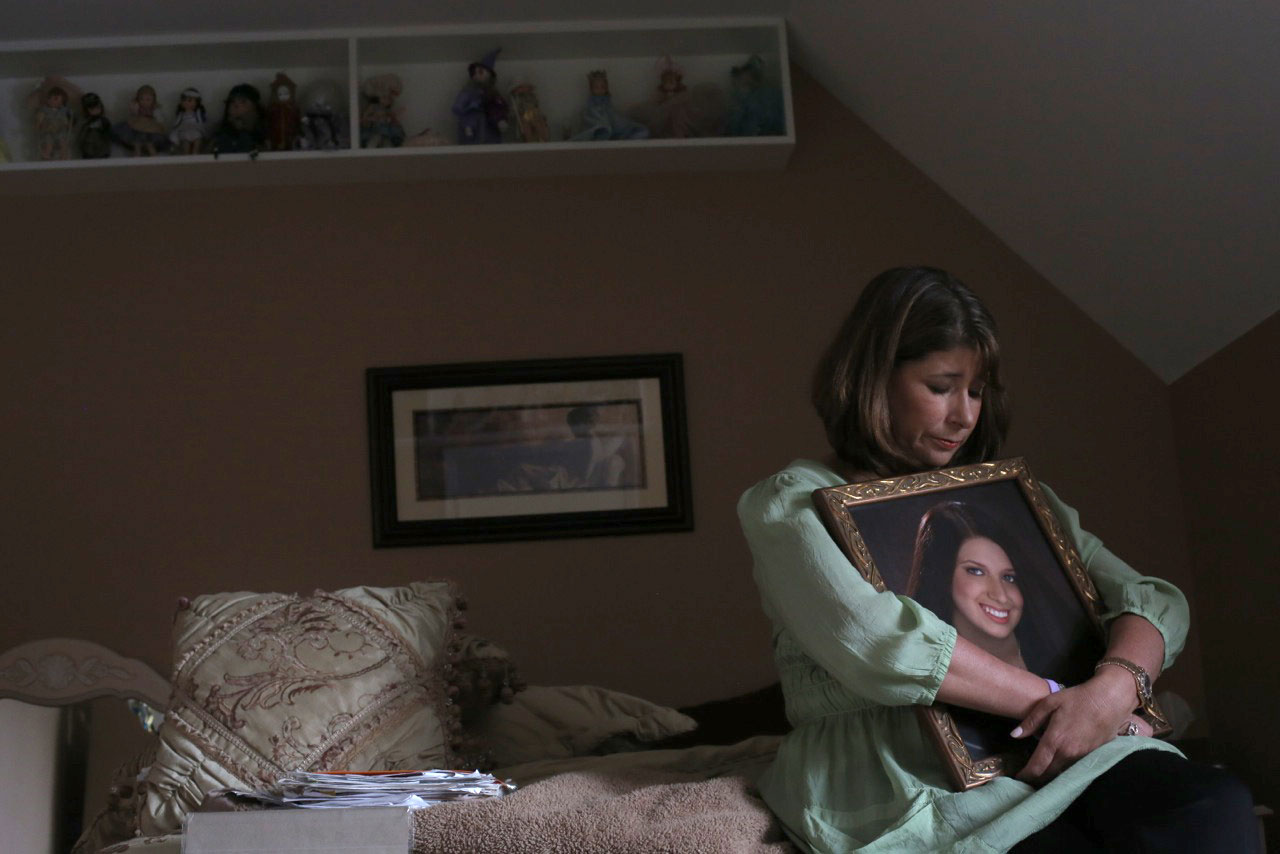Federal officials refuse to say why, but three Michigan families seeking a potentially lifesaving meningitis vaccine used to halt outbreaks in the U.S. were stopped at the Canadian border Tuesday night — and told they couldn’t bring the drug back into the country.
Melanie Lefkofsky, 49, of West Bloomfield, Michigan, said she and her husband and three children were among 11 people detained for two hours, until nearly midnight, after they traveled to Windsor, Ontario, to vaccinate their college-age kids with Bexsero, a vaccine licensed in Europe, Australia and Canada, but not in the U.S.
They told border officials that they had additional doses of the vaccine that protects against meningitis B. The rare but often deadly bacterial infection sparked outbreaks last year at the University of California, Santa Barbara, and at Princeton University — where Nicole Basta, a scientific investigator with Fred Hutchinson Cancer Research Center, is studying students’ immune response.
“Listen, I wasn’t trying to hide anything,” Lefkofsky said.
Border officials refused to let the family proceed, citing advice from the U.S. Food and Drug Administration (FDA), she said. But other families carrying doses of Bexsero had been allowed to enter the U.S. mere hours earlier.
“That’s my issue. There are some inconsistencies. They’re lacking protocol,” she said. “It’s not like I was carrying Ebola across the border here.”
Neither FDA nor U.S. Customs and Border Protection officials would answer a reporter’s questions about the incident Wednesday. The Michigan mother who organized the caravan said the FDA is “looking into it.”
“The FDA has provided assurance that this will not happen again,” said Alicia Stillman, 50, of West Bloomfield, whose 19-year-old daughter, Emily Stillman, died in February 2013 of a meningitis B infection while attending Kalamazoo College.
Minnesota Congressman Erik Paulsen said he’s glad the FDA has “corrected their error,” spokesman Drew Griffin said in an email.
“However, he has concerns about how this event took place to begin with,” said Griffin, adding that Paulsen will join a caravan to Canada this weekend.
Stillman has made it her mission to help as many people as possible obtain the shots that could have saved Emily’s life. Since May, more than 200 people have joined her vaccine runs to Windsor, she said.
Lefkofsky said she has been moved by Stillman’s determination – and inspired to make sure her own kids were protected.
“I know meningitis B isn’t as prevalent as catching a common cold, but I don’t know that I would forgive myself if they came down with it and I didn’t inoculate them,” Lefkofsky said of her two college-age children. “It was an opportunity that Alicia didn’t have.”
FDA rules generally prohibit importing unapproved drugs for individual use, unless the drug is for a serious condition for which there is no treatment in the U.S.; there’s no promotion of the drug to U.S. residents; the drug doesn’t represent an unusual risk; and a doctor certifies the treatment and attests that it’s for personal use.
The families in Stillman’s groups have followed those rules, plus the guidelines for obtaining the shots in Canada, where they’re examined by a doctor and then given a prescription for Bexsero. The first dose is injected at a clinic run by pharmacist Robin Chang, who said Canadian health officials are used to U.S. residents crossing the border for medications.
Full protection requires a second dose of vaccine, which must be given at least a month but no more than six months after the first. Many families bring the second dose home to be administered later by a health care provider, Stillman said.
Demand for Stillman’s caravans has jumped as the summer winds down, she said. “People are panicking because the kids are going back to school.”
Bacterial meningitis cases, including meningitis B, have dropped sharply in the U.S. in recent years, with only about 500 cases a year. But college-age students are most vulnerable to the infection, which kills 10 percent to 12 percent of those affected and leaves one in five of the rest with lifelong disabilities, including limb loss, deafness and mental retardation.
Many U.S. colleges and universities require that students receive meningitis vaccinations; however, shots available in the U.S. cover four strains of the bacteria, but not the B strain.
The CDC and FDA imported emergency doses of Bexsero last year after meningitis B outbreaks sickened students at Princeton and UCSB. The federal health authorities determined the special use was justified even though the vaccine wasn't approved in the U.S.
A UCSB student, Adam Loy, lost both feet after he contracted a meningitis B infection in November. Stephanie Ross, a Drexel University student, died in March after close contact with a Princeton student exposed to the outbreak.
Novartis, which makes Bexsero, supplied more than 30,000 doses of the vaccine to students and staff at the two schools. About 1,300 incoming freshmen at Princeton are receiving the vaccine as they arrive this year -- an extension of the special-use provision granted last year.
Basta, the Fred Hutch-affiliated researcher, collected blood samples last spring from Princeton students who received the vaccine, and she’s just received a second grant to study the results in the freshmen group, too. The study will look at immune markers of protection against meningitis B both before and after vaccination with Bexsero. It could help inform future recommendations for disease control and prevention, she said.
But parents like Melanie Lefkofsky wonder why students at Princeton are protected, but her children are not. Two drugmakers, Novartis and Pfizer, have submitted applications for FDA consideration of vaccines to prevent meningitis B, but the process could take months.
If the FDA says it’s OK, she may make the 40-minute drive to Windsor later this week to get the second vaccine for her 21-year-old daughter and 18-year-old son.
“We were trying to wrap this up,” she said. “We wanted to get this going to get their immunity going before school starts.”
